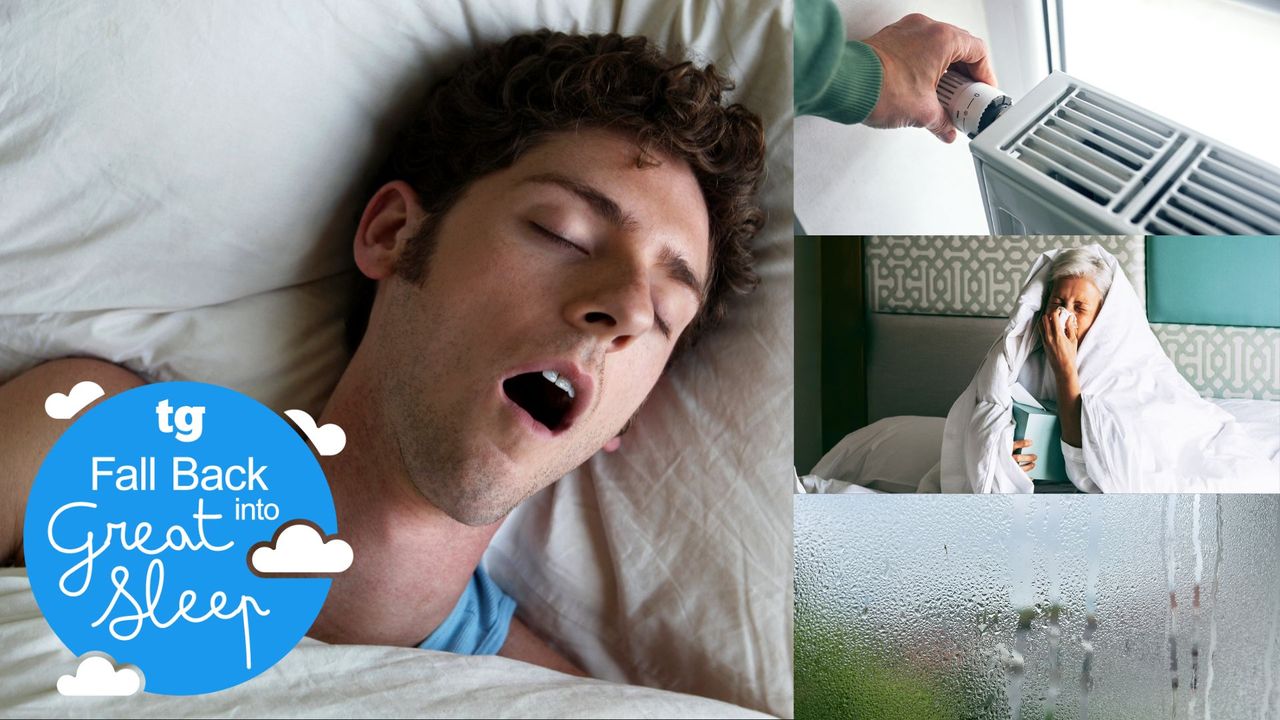As winter approaches, many individuals experience an increase in snoring, which can disrupt sleep quality and pose health risks. According to sleep experts, this seasonal change can exacerbate snoring due to cold, dry air and indoor heating that irritate the throat and nasal passages. This can lead to narrowed airways and a greater likelihood of snoring.
Dr. William Lu, medical director at Dreem Health, explains that “cold, dry air and indoor heating dry out and irritate the throat and nasal passages.” This irritation can lead to more mouth breathing, which often increases snoring. Additionally, conditions such as seasonal colds and sinus congestion can further complicate nasal breathing, worsening the issue.
The impact of snoring extends beyond mere annoyance. Dr. Lu emphasizes that “when airways are partially blocked, it makes breathing less efficient.” This inefficiency can lead to micro-awakenings during the night, preventing individuals from reaching deep, restorative sleep stages. As a result, even if someone sleeps for a sufficient number of hours, they may still wake up feeling tired and groggy.
Identifying Increased Snoring and Its Effects
For those who sleep alone or have partners who are heavy sleepers, determining if one snores can be challenging. Yet, recognizing the signs is crucial, as regular snoring can impair sleep quality and may indicate conditions like sleep apnea. Dr. Christopher Allen, a board-certified sleep physician and sleep science advisor at Aeroflow, notes that waking up with symptoms such as a dry mouth, sore throat, or morning headaches can indicate that someone is breathing through their mouth due to snoring or untreated sleep apnea.
Feeling fatigued during the day is another significant indicator of increased snoring. Dr. Lu explains that “feeling fatigued, and having trouble concentrating happen as a result of repeated pauses in breathing or micro-awakenings.” Such disruptions also affect emotional well-being, leading to mood changes.
Dr. Jordan Weiner, a sleep apnea specialist at Weiner Sleep Surgery, highlights that snoring can interfere with critical brain processes. “The frequent disruptions of sleep can prevent clearance of adenosine,” he states. Accumulation of this chemical can leave individuals feeling as if they did not sleep well.
Expert-Recommended Strategies to Reduce Snoring
To combat the increase in snoring during winter, experts recommend several strategies. These approaches not only aim to improve sleep quality but also enhance overall health and well-being.
1. **Use Menthol Nasal Strips**: Dr. Allen suggests using nasal strips, such as the Breathe Right menthol strips, which can open nasal passages and improve airflow. This could help reduce both mouth breathing and throat tissue vibration, thus minimizing snoring.
2. **Adjust Bedroom Humidity**: Cold and damp air can worsen congestion and allergies. Utilizing a humidifier can improve air quality, alleviating dryness in the nose and throat. Conversely, a dehumidifier may help regulate excessive warmth in the bedroom, which could also contribute to snoring.
3. **Take a Warm Bath or Shower Before Bed**: A warm shower or bath can help clear congestion and blocked sinuses. Dr. Lu notes that the steam from a warm bath can open nasal passages, making breathing easier and promoting better sleep.
4. **Avoid Alcohol and Smoking**: Alcohol is a central nervous system depressant that can worsen both snoring and sleep apnea. Dr. Weiner states that it relaxes throat muscles, increasing the likelihood of airway collapse. Smoking further complicates the issue by paralyzing cilia in the respiratory system, leading to mucus accumulation and increased airway congestion.
5. **Change Sleeping Position**: Sleeping on one’s back can exacerbate snoring. Dr. Weiner recommends switching to a side-sleeping position to keep airways open. For those who struggle with this transition, wearing a shirt with a pocket for a tennis ball can discourage back-sleeping. There are also modern electronic aids that vibrate when the person rolls onto their back, nudging them back to their side.
As winter sets in, understanding the reasons behind increased snoring and implementing these expert-recommended strategies can significantly improve sleep quality. Addressing snoring not only enhances personal health but also benefits those who share sleeping spaces, ensuring a more restful night for everyone.
